This article previously appeared on Crossfader
While All Pigs Must Die’s latest album, HOSTAGE ANIMAL, came out in October of 2017 (read our review of it here), it still remains one of the gnarliest records of the past few years, and is entirely worth your time if you happen to have missed it! I was given the opportunity to interview Adam Wentworth, one of the main guitarists for the hardcore punk pundits, who just wrapped up a small West coast tour at the end of February. Without further ado, enjoy gaining knowledge of my horribly awkward ice-breaking, Adam’s appraisal of Pink Floyd, the band’s musical process, and how they manage to balance adulting with cranking out skull-crushing corkers.
Nick Funess: Congrats on the new album!
Adam Wentworth: Thank you very much.
NF: Have interviews been kind of pouring in, or . . . ?
AW: Yes, we’ve been trying to split them up as best as we can.
NF: What do you think of over-the-phone type interviews? Do you think there’s something lost without meeting the band members in person?
AW: Uh, yeah, we actually have never done it in person.
NF: Oh, really.
AW: Yeah, it’s always been either phone or email.
NF: Oh, wow. This might be an odd question then . . . but what are you wearing at this moment?
AW: (Laughs) Just a hoodie.
NF: No band t-shirt or anything?
AW: No, just a black t-shirt.
NF: No ripped jeans?
AW: No, these are fairly new. I usually only own one pair of pants at a time.
NF: Alright, quality over quantity, right?
AW: Yeah (laughs).
NF: I guess I just want to start talking about the art of the new album cover. It took me a moment to realize it was rats . . . Is there a process that you guys use in determining the cover?
AW: It’s been different for every record. This one we sort of talked to a few people and didn’t have an idea in mind. The album title is sort of an abstract state of mind or concept . . . so eventually we were like we need to give people more direction, we need to figure out what we want ourselves and stumbled upon the “rat king” and thought that it worked conceptually and visually . . . it has a nice graphic shape on it, it could be kind of iconic.
NF: So did you try to tie it into the themes of the album as well?
AW: I think it more fit into the album title which kind of informs everything. We had the album title long before . . . “Hostage Animal,” the song itself, was one of the earlier songs. This record was written over a long period of time, some of this material is pretty old.
NF: Right, your last time was almost four years ago?
AW: Yes, and some of this stuff, at least in its infancy, existed around then.
NF: When you guys brought in Brian Izzi, did that change the direction or dynamic of it all?
AW: It definitely changed the dynamic, it definitely changed the direction. I think a good deal of the record was sort of roughed out before he came aboard but we always had this thing where we talked before about having another guitar player. You just kind of get to a point where you’re like, “Well, ok, we don’t want to keep making the same thing over and over again. If we have someone else on board we can sort of push it.” We started to do that with our records, but we can’t really faithfully reproduce this live . . . So I think we were kind of going down that path anyway and when he was on board, we didn’t have to worry about this at all. I guess some of the more wider spectrum, the more involved, songs came to life a bit more.
NF: Right, there’s a noticeable difference in heaviness. I didn’t think you guys could get heavier and then you did.
AW: (Laughs) That’s the goal, right.
NF: You guys are in the east coast right now. Massachusetts? I know that was kind of a breeding ground for hardcore in the ‘90s, but what’s the scene there now, is it evolving?
AW: I’m the wrong person to ask, I barely leave my house (laughs). If I’m at a show it’s because I’m playing it. Roky Erickson and Roger Waters were the last concerts I’ve been to. But I think the thing up here, it’s a very incestuous scene, geographically it’s pretty small but you can drive three or four hours from here and hit several major cities . . . you can hit all these different markets in a weekend in this coast.
NF: You mentioned Roger Waters, did you find any interesting or surprising influences in this album coming into play? Were you guys listening to any stuff that lent any major inspiration?
AW: I don’t think anything out of the ordinary. Matt and I are huge Pink Floyd fans. ANIMALS is one of the heaviest records, if you read those lyrics . . . it’s just furious and that’s sort of the idea that heaviness isn’t about volume or what you’re tuned to, it’s in your fingers and it’s in your intention.
NF: I notice in this album there’s a bit of these stoner, doomy-type passages. Is it weird going from one genre to the next? Going from such a slow rhythm to a more frenetic rhythm?
AW: I mean it kind of just comes natural, we all listen to so much stuff and celebrate heavy music . . . We aren’t thinking about, “OK, this needs to be a metal song,” or, “This needs to be a doom song,” it’s more about what makes sense in the large picture. I think taking stock of everything at the end is the most important since we barely see each other. You’re ultimately searching for a balance.
NF: There’s still a chemistry involved through all this.
AW: Yes, that’s why we’re able to do it. It doesn’t matter if we go for a year without seeing each other. There was a lot of downtime between this and the last record, [but] you get back into the room with these guys and it’s just like, “Oh, yeah.” It’s there, it’s an intangible quality. And we’ve all played in bands with each other before, so it’s a proven track record . . .
NF: I know Kurt Ballou lent his hand on this album. You guys have worked with him for every release?
AW: Yes, every record. We’re friends with him which always makes things a lot easier. It’s a comfortable environment . . . He knows how to push us and what to get out of us.
NF: It’s not exactly a hands-off approach . . . or what would you say?
AW: In terms of how he works, this is the only record we’ve sent him ahead of time to let him know what he’s working with. During the process, if he has an idea, he’s not shy about sharing. It’s not a producer role, but if he’s like, “Hey, I think this sounds weird,” he’ll tell us. Most of the time he’s right. Sometimes we’re like, “No, this is what we’re going for.”
NF: It seems like there’s this freedom aspect of this band and you’re all able to geek out and just not worry about anything but what you love to do.
AW: Yeah, I think because this isn’t any of our main incomes and we’re not a full time band, it does take a lot of pressure off. It’s literally just a passion, it’s not like, “Oh, if I don’t do this, we’re not eating tonight.”
NF: Was it ever like that for you at a time?
AW: Yes, but I was young enough that it didn’t really matter. Like all I had to do was spend for myself, I was in my early 20s, so it was just like, “Am I sleeping indoors? Cool” (Laughs). I didn’t have to worry about kids, or death . . . or anything like that.
NF: Do you have kids yourself?
AW: No I do not.
NF: You don’t have to worry about that just yet. Do you have a girlfriend or wife or . . .
AW: Yeah.
NF: What are her thoughts on the band?
AW: She loves it, she’s super supportive. She plays music herself. She’s a jewelry designer, I’m a graphic designer, we have a lot of overlapping interests. It’s a very supportive, complementary situation.
NF: Were there any things on this record that you decided to focus on more or less compared to previous ones?
AW: I think there were some ideas started in the last record that we executed better on this one. I think the slower songs, “Again Without End” or “Slave Morality,” are far more successful than “Of Suffering” on NOTHING VIOLATES, which was more of a slower song, and it’s cool, but I think we definitely were able to realize that idea and that intention on this one.
NF: Were there some tracks from the last album that you just kind of scrapped and then refined for this album?
AW: No, I think it was more of re-planting that seed and tending to it a bit better. Some of it’s just mental, like having Brian on board—my approach is much different now. I worried about things like how I can take up as much space as possible during concerts with just one guitar. How to move as much air? Treating a live show was like driving a bulldozer, whereas now it’s a little more precise.
NF: And there’s some pressure off you as well.
AW: Absolutely, I can make mistakes here and there, and there’s someone else to cover it. It’s a completely different mindset. Both us now can pay attention to so much more nuance and crafting sounds. It is such a raw sounding record, that might sound like a weird thing to say, but there’s a lot more going on than previous ones. You have all these other instruments, it’s very precision-based, I’m worrying about rolling off volume pedals and tone, whereas before it was like, “Alright it’s just a sprint. Like start set, end of set. Just keep going, keep the pedal down.” It’s a lot more enjoyable, to be honest with you.
NF: Do you guys work on lyricism as a collective, or is that all Kevin?
AW: That’s Kevin. We have a shared dropbox, and the latest version of whatever we’re working on is in there, so anyone at any time can kind of check in and he’ll use that. I can’t speak for him, but I believe his process is just sort of what sense of spirit is he getting from each song and then finding a topic or inspiration to branch off of. There’s a lot of trust in this band. There’s not a lot of handholding or directing.
NF: Well, where do you guys see yourselves going next? Is another break coming? Or do you see yourselves going right back into the next project?
AW: I think we’re going to play as much as we can on this . . . There definitely will not be another full year break between the next record. Especially when Brian joined it sort of breathed new life into everything, everything kind of had a fresh feel to it. It’s rejuvenated us.


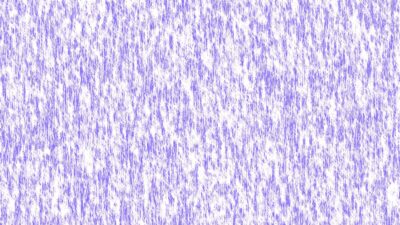
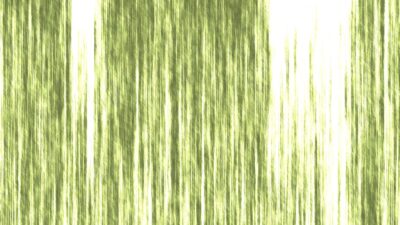
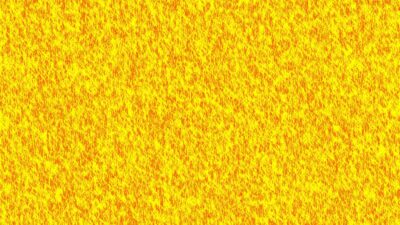
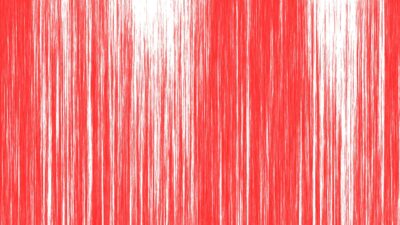
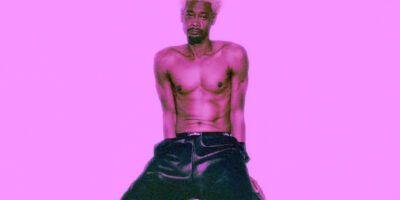

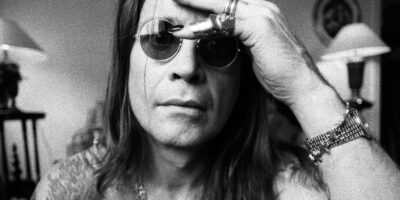


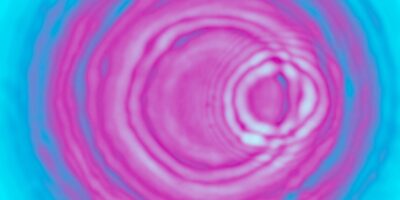




Thanks for the insights into Adam and seems like you had great rapport despite the awkward ice breaker!